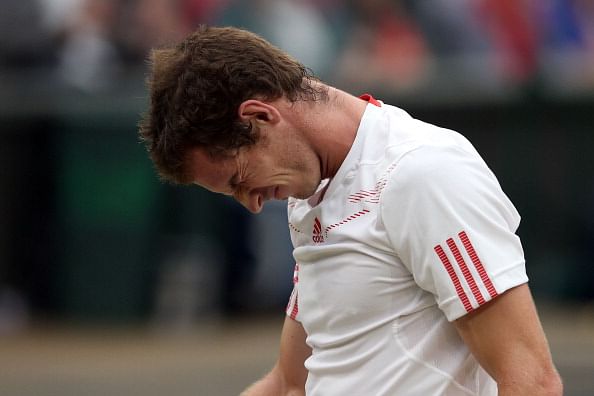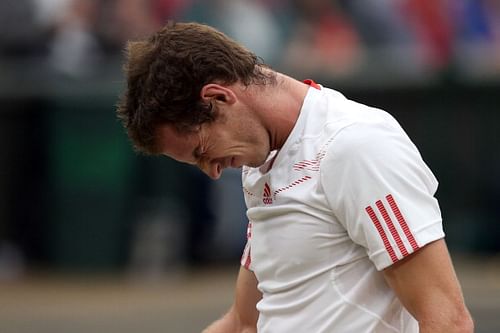
US Open 2013- Rise, Andy Murray: I’m sorry, I won’t

Andy Murray
If there’s one thing tennis teaches you, it’s that the loser can walk home winning more points than the winner. It’s not about ‘how many’. It’s about when you win the point.
Tennis is one of the most brutal sports out there. It combines the physical stress of a football match with the mental pressure of a chess match. Every decade, hundreds of ‘supernatural talents’ wither away, not because they don’t have the physical game to last, but because they can’t survive mentally.
In many ways, Murray’s loss to Wawrinka yesterday was reminiscent to how Federer walked out of the Open. Federer wasn’t defeated. He pulled himself out. Most of the players in the top ten, and certainly all the players in the top five have this innate ability to raise their game at will. That is the sole reason why winning the breakpoints is so hard against them. Federer rightfully self-destructed. He never switched on. Age could be catching up with him. Truthfully, it’s a slump in form.
Murray wasn’t hitting the ball well from the beginning of the match. His timing was off, his strategy wasn’t working. Wawrinka was playing flawlessly. Wawrinka’s always been doused in Federer’s shadow. A player on par with Tsonga, Berdych or anyone outside the top ten, Stan has always deserved more credit to his role in Swiss tennis than he received.
At the Australian Open this year, Stan showed the world what he was capable of. He held Djokovic on a leash for two sets before Djokovic broke free. He almost did it then. He did it fully now.
The difference between Murray and Djokovic is all mental. Murray has played and pulled through some dramatic five setters before.
In a standard five setter, momentum keeps shifting. It’s easier than having to come back from two sets down. Djokovic thrives on pressure. He uses it to elevate his game. The US Open semi-finals in 2010 and 2011 were testament to it. There have been so many times when he’s had to save match-points and eventually gone on to win the match.
Murray, however stayed switched off. There was a grumpy demeanor about him that seemed to bog him down worse than he was. His constant berating at his personal box seemed to make things slide downhill. There was no sign of a change in strategy, an attempt to change pace or to mix things up.
Game wise, there’s not much that seperates Murray and Djokovic. As a ball striker, Murray’s even better than Djokovic. He counterpunches. Counterpunchers barely ever miss. They thrive off pace.
The difference between Murray stuck in a hole and Djokovic is that Novak would dash to the light and be happy he got out. Murray would complain about being in. There’s a huge difference in the psychic.
Through the entirety of the first week of last year’s open, Murray complained about his health and fitness. He’d clutch his leg if he lost the point. Suddenly, in the last few matches it was as if all his ailments disappeared and he lifted the title in a heroic daze.
Djokovic is the kind of a player who you’d want playing tennis if the fate of the world rested on one point. He loses with grace, not with complaint. He screams off his frustration, even breaks a racket, but unlike Murray never directs it towards himself. Murray turns his anger within. He berates himself. Sometimes it sparks him, most of the times, it doesn’t.
There’s only one element that divides the lot that’s better than good and almost the best. It’s the spark to strike up light even from the darkest of places. Djokovic and Murray are the same age. It won’t be surprising if Djokovic finishes his career miles ahead of the Brit. Winning a slam is indeed a break, but winning while playing badly is an even testier achievement.